In an election held Sunday to choose a replacement for former Venezuelan President Hugo Chavez, who died last month, Chavez’s anointed successor, Nicolas Maduro, narrowly beat rival Henrique Capriles for the presidency. Capriles has refused to concede the election, citing some 3,200 voting irregularities, and is demanding a recount. In separate email interviews, two Venezuela experts who spoke with Trend Lines agreed that while Maduro won the election, his narrow margin of victory represented a kind of defeat. “It leaves him seriously weakened,” said David Smilde, a sociology professor at the University of Georgia and senior fellow at the Washington […]
The Americas Archive
Free Newsletter

Colombians under 65 cannot remember living in a country at peace. Internal armed conflict has raged almost continuously in the South American nation since 1948. With talks ongoing between the government and the larger of the country’s two leftist guerrilla groups, the Revolutionary Armed Forces of Colombia (FARC), Colombians may soon discover what peace is like. But they may find it only a bit more peaceful or secure than what came before. The talks taking place in Havana, Cuba, which are the fourth peace process attempted with the FARC since 1982, have a better-than-even chance of resulting in an accord. […]
The announcement this week that Jabhat al-Nusra (the Nusra Front), one of the main armed groups battling to take down the regime of Syrian President Bashar al-Assad, has formally announced its allegiance to al-Qaida could signal a major shift in Syria’s two-year-long civil war. It certainly complicates matters for the United States. Over the past several months, Washington has concentrated its efforts on two parallel but complementary tracks: forging a broad-based, secular-leaning, pro-Western provisional government that could take over the administration of areas where the government in Damascus has lost control; and encouraging different rebel military groups to develop a […]

In December, if only for a brief moment, the prospects of a brighter future for Venezuela-U.S. relations appeared on the horizon. With Hugo Chavez, Venezuela’s firebrand socialist president, having just returned to Cuba to undergo what would be his final cancer treatment, his vice president and anointed successor, Nicolas Maduro, announced that Caracas would engage in a dialogue with Washington to examine and possibly improve bilateral relations. Five months later, Chavez is dead, and this Sunday Venezuelans will vote in a snap election for a new president. The election will decide whether Chavez’s so-called Bolivarian revolution, a policy of social […]

The Arab-Israeli conflict has never lost its power to conjure visions of Nobel Peace prizes among world diplomats, even as it has repeatedly thwarted the efforts of even the most skilled among them. Despite the occasional success, well-intentioned plans have also backfired disastrously, triggering new waves of deadly violence. As the Obama administration launches a new push for peace between Israelis and Palestinians, the watchword must be, “First, do no harm.” Forging a successful peace process that brings results would obviously create tremendous benefits for the local population and for America’s strategic interests. It is undeniably a worthy goal. But […]
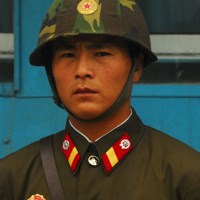
Under North Korea’s former dictator Kim Jong Il, crises followed a well-choreographed pattern. There would be provocation and sometimes outright aggression accompanied by paranoid, hostile and even hysterical rhetoric from Pyongyang. Eventually Kim would be mollified by some diplomatic concession or more assistance to keep the ramshackle North Korean economy from collapsing altogether, and things would return to normal — such as it was. However much this game frustrated the United States, Washington was fairly confident that it would not escalate into accidental war. Kim knew how far to push and when to back off. Unfortunately, the young Kim Jong […]
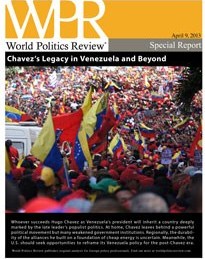
Whoever succeeds Hugo Chavez as Venezuela’s president will inherit a country deeply marked by the late leader’s populist politics. At home, Chavez leaves behind a powerful political movement but many weakened government institutions. Regionally, the durability of the alliances he built on a foundation of cheap energy is uncertain. Meanwhile, the U.S. should seek opportunities to reframe its Venezuela policy for the post-Chavez era. Domestic Legacy After Chávez, Future of Venezuelan Democracy UnclearBy Catherine CheneyMarch 6, 2013 Despite Political Uncertainty, Venezuela Remains Stable — for NowBy David Smilde and Dimitris PantoulasMarch 5, 2013 Latin America’s Leftists Audition to Succeed ChávezBy […]
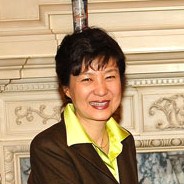
The new South Korean government of President Park Geun-hye finds itself in a difficult situation. On the one hand, it must respond to North Korea’s missile threats to avert more serious ones. On the other, it must do so without provoking Pyongyang or Beijing. Chinese officials are already concerned by South Korea’s strengthening security ties with the U.S. as well as by Seoul’s recent decision, supported by Washington, to acquire longer-range offensive ballistic missiles capable of reaching Chinese territory. But responding to the urgent North Korean threat requires bold action, and, despite Beijing’s complaints, the added pressure that closer U.S.-South […]

Over the weekend, Mexican President Enrique Pena Nieto, who is on a tour of Asia that ends tomorrow, met with Chinese President Xi Jinping in southern China. Pena Nieto’s trip is part of an effort to develop closer bilateral ties between Mexico and China, after more than a decade of what the Financial Times has called “reciprocal coolness.” The trip “was predicated on the idea of engaging China in order that Chinese investors see Mexico as an optimal export platform into North America,” Francisco Gonzalez, associate professor and Riordan Roett chair in Latin American Studies at the Johns Hopkins University […]
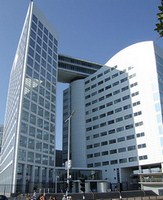
The U.S. has recently made two high-profile moves to cooperate with the International Criminal Court, which the U.S. has not joined and is barred by domestic law from supporting financially. In an email interview, Harry Rhea, assistant professor of criminal justice at Florida International University and author of the book “The United States and International Criminal Tribunals: An Introduction,” discussed U.S.-ICC cooperation and how the U.S. can bolster the court without joining it. WPR: Do recent U.S. moves to cooperate with the court — transferring Bosco Ntaganda to The Hague and including ICC suspects in the Rewards for Justice program, […]
Experts are debating what precisely are the motives behind North Korea’s recent spike in belligerent rhetoric and posturing, with answers ranging from the opinion that “war talk” is an attempt by the North’s young leader, Kim Jong Un, to solidify his hold on power to the worry that the regime is losing its grip on reality. What is more certain, however, is the set of assumptions guiding Pyongyang’s strategic calculus. Whether the North Korean leadership’s assessments are accurate or not — and what steps the other powers in the region take to correct them — may help determine how this […]

It’s election season again in Venezuela. And while the future of the country’s international oil agreements will be far from most voters’ minds on April 14, the same cannot be said for the 17 Caribbean and Central American nations that make up Petrocaribe. Their energy security, if not economic stability, may well rest on the outcome of the presidential race. Established with 14 members in 2005, Petrocaribe provides preferential payments for Venezuelan oil on extremely favorable terms. Currently, members pay a mere 5-50 percent of the market price upfront. The remainder is then repaid over a 17-25 year period at […]

During the 1990s, the U.S. Department of Defense concluded that it was in a “strategic pause.” With the Soviet Union gone and no equal threat on the horizon, the Pentagon had the luxury of doing things like building a “futures” industry to think big thoughts about long-range changes underway in the security environment and the nature of armed conflict. But today strategic futurists face hard times. As the defense budget shrinks, money and time for forecasting and analysis are hard to come by. There is no doubt that cuts in defense spending are needed, but if thinking about the future […]

In recent weeks, the Republic of Belarus has been attempting to break out of its near isolation from the European Union and end a period of tension that began after Belarus’ December 2010 presidential election. Following the arrests of more than 700 protesters in Minsk’s Independence Square after the election, the EU revived its travel sanctions on leading Belarusian political and judicial figures, headed by President Alexander Lukashenko. In response to the EU’s actions and its demand for the release of all political prisoners, including former presidential candidate Mikalai Statkevich, Belarus moved measurably closer to Russia. Belarus is a full-fledged […]
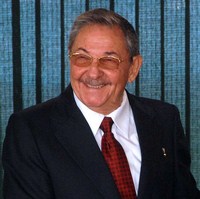
On March 8 in Caracas, Raúl Castro, looking somber, stood in a place of honor beside Hugo Chávez’s casket during the late Venezuelan president’s state funeral. Castro was no doubt pondering what Chávez’s death means for Cuba’s ambitious economic reform program — or “updating” of the economic model, as Cubans prefer to call it. Not long after Chávez’s first election victory in 1998, he and Fidel Castro signed the first of what would become more than 100 bilateral cooperation agreements. By the time Chávez died, Venezuela was providing Cuba with some 110,000 barrels of oil daily at subsidized prices, worth […]

The United States and Japan are perhaps the two countries for which cooperation on cybersecurity is the most crucial. They are, respectively, the largest and third-largest economies in the world, and two of the largest military powers. Moreover, the economic and military strength of both countries relies on sophisticated intellectual property, military intelligence and trade secrets. As a result, they have more to lose from cyber threats than any other countries in the world. Recognizing the importance of cybersecurity cooperation, leaders in both Japan and the U.S. have advocated bilateral dialogue on the issue. Most recently, during a meeting with […]
